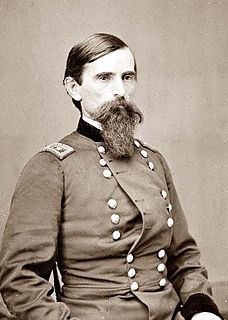A Quote by Henry David Thoreau
No man's thoughts are new, but the style of their expression is the never-failing novelty which cheers and refreshes men. If we were to answer the question, whether the mass of men, as we know them, talk as the standard authors and reviewers write, or rather as this man writes, we should say that he alone begins to write their language at all.
Related Quotes
Who cares what a man's style is, so it is intelligible,--as intelligible as his thought. Literally and really, the style is no more than the stylus, the pen he writes with; and it is not worth scraping and polishing, and gilding, unless it will write his thoughts the better for it. It is something for use, and not to look at. The question for us is, not whether Pope had a fine style, wrote with a peacock's feather, but whether he uttered useful thoughts.
There are, first of all, two kinds of authors: those who write for the subject's sake, and those who write for writing's sake. ... The truth is that when an author begins to write for the sake of covering paper, he is cheating the reader; because he writes under the pretext that he has something to say.
He that hath wife and children hath given hostages to fortune, for they are impediments to great enterprises, either of virtue or mischief. Certainly the best works and of greatest merit for the public have proceeded from the unmarried or childless men, which both in affection and means have married and endowed the public. He was reputed one of the wise men that made answer to the question, when a man should marryA young man not yet, an elder man not at all.
To exact of every man who writes that he should say something new, would be to reduce authors to a small number; to oblige the most fertile genius to say only what is new, would be to contract his volumes to a few pages. Yet, surely, there ought to be some bounds to repetition; libraries ought no more to be heaped for ever with the same thoughts differently expressed, than with the same books differently decorated.
A man is not merely a man but a man among men, in a world of men. Being good at being a man has more to do with a man’s ability to succeed with men and within groups of men than it does with a man’s relationship to any woman or any group of women. When someone tells a man to be a man, they are telling him to be more like other men, more like the majority of men, and ideally more like the men who other men hold in high regard.
I know what I should love to do - to build a study; to write, and to think of nothing else. I want to bury myself in a den of books. I want to saturate myself with the elements of which they are made, and breathe their atmosphere until I am of it. Not a bookworm, being which is to give off no utterances; but a man in the world of writing - one with a pen that shall stop men to listen to it, whether they wish to or not.
Whenever I talk about being a feminist or speaking out for equality, it's also about the idea that men are treated with respect. It's not just about treating women like people and not abusing them. You also can't abuse men and you can't say things like, 'Oh, he was just a man. He didn't know any better.' Or 'He's a man, what did you expect?' That's just as abusive and damaging to men, I feel.
I'm not just interested in the thoughts I have, but also in others' thoughts, and why not carry those forward? That's why American fiction can be so thin. All these fears, like not seeming to be original - I mean, hell, most stuff isn't. The question is whether you can articulate your thoughts for the moment in which you're living, which is a different time. Say them in a newer way. There are new events, and language changes - sensibilities change. We are writing in and of the time we're in. Oh, it's a weird time.

































